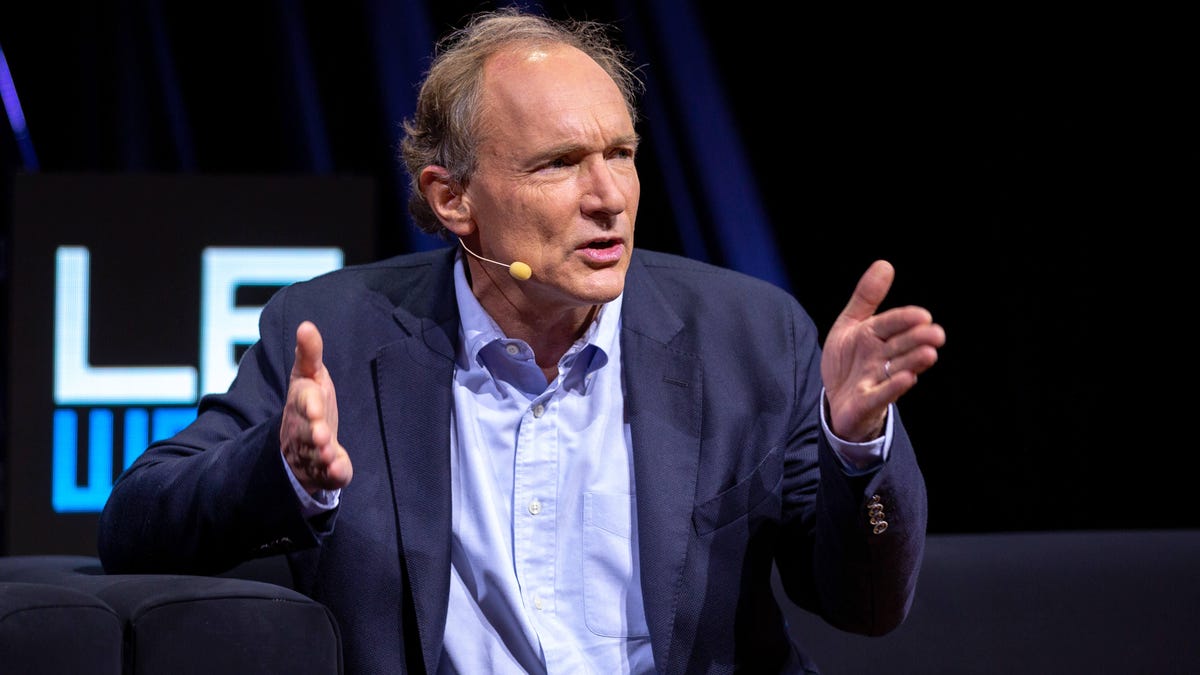The World Wide Web at 30 feels a lot like the early days
A few words of warning from someone who has seen it all before.

World Wide Web founder Tim Berners-Lee at LeWeb 2014
The internet has many birthdays.
There was 1969, when remote computers communicated directly for the first time. Then there was 1983, when the TCP/IP standard was adopted. Today we're celebrating 1989, the year Tim Berners-Lee laid out the basic concepts of the World Wide Web in a proposal, which included ideas like HTML, URL, and HTTP.
March marks the 30th anniversary of that last milestone, which is perhaps the most important one, as the web is primarily what we think of as the "internet" today.
And 30 years later, we have Seamless.
A few days ahead of that anniversary, Berners-Lee is giving a talk in Washington DC at the Washington Post Live Center about the founding of the web and the decades that followed.
It's a topic that resonates with me (and likely a lot of people in my age group) because I was there from nearly the beginning.
In the middle of an industry obsessed with youth, I don't often like to admit it, but my first email address came in the form of an undergraduate VAX (virtual address extension) account. I recall that email address being at least partly comprised of my social security number, which gives you an idea of the state of online security at the time.
Version 1.0
In the early to mid '90s, we were all stumbling around the in the dark. We discovered things like Mosaic, the first web browser most of us ever saw. I registered my first domain name (which I still own) in January 1998, about eight months before Google was incorporated.
Like many '90s kids starting their careers after college and grad school, I ended up as a part of the Dotcom 1.0 boom. Mid-1998 saw me make the jump from print magazines and becoming employee number 20-something at a pop culture and video game web property called UGO.com, then a spinoff of an early ecommerce company called Interworld. We were bright young things gripping our on-paper stock options, calculating just how much cash we'd rake in for an IPO that always seemed just over the horizon.
Sadly, we could not.
That IPO never happened, but I did manage to be a part of the one of the first viral publicity events of the era. My colleagues and I created the Gary Coleman Webathon, which was the first online celebrity fundraising event. Gary's gone now, and so is UGO, shut down by one the publishers that scooped it up along along the way for a pittance.
(Humanity-affirming footnote: The original UGO editorial crew still gets together about once a year or so, even though most of us last worked together almost 20 years ago.)
But even as a grizzled internet veteran, I'm lucky enough to have avoided most of the biggest disasters of the Dotcom 1.0 era. I left companies before they imploded and eventually landed here. My wife was not as lucky, riding some of the most infamous Dotcom flameouts down into the ground, including Kozmo.com and TheGlobe.com.
Everyone back then was addicted to checking and rechecking what may have been the TechCrunch of its day, a daily compendium of layoffs and shutdowns, with a name I won't mention here.
Let's do the time warp again
What's amazing to me, now that the World Wide Web enters its third decade, is that I still have much of the same sense of wide-eyed wonder about the the possibilities that lie ahead. From online augmented reality experiences to impossibly thin laptops to artificial intelligence in anything and everything, I still can't wait to see what's next.
But there are also things that feel familiar, and not always in a good way. Consider this my old-man-waving-a-stick warning, but the endless cycle of hype over everything -- from cryptocurrency to blockchain to virtual and augmented reality to new ways to share social media experiences -- often reminds me of the boiler room salesmanship of pre-Dotcom Bust era.
Today it's Theranos, Google Plus and Juicero. Back then it was Pets.com, Pseudo and Flooz (look it up).
But the Dotcom 1.0 version of me would have also found many of today's online experiences mindblowing. From the democratization of live video broadcasting to decades of movies and music on-demand to maintaining more-important-than-they-sound social media weak ties with childhood friends and industry colleagues.
Despite a growing dark side of technology that has led to major problems like rampant data misuse and the social media hate speech and harassment crisis, I still believe the web's best days are ahead of it.

